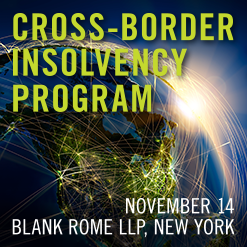| A recent decision by the Eleventh Circuit Court of Appeals addresses an issue previously addressed by only one other circuit court and should be welcome news for preference defendants asserting a “subsequent new value” defense while also having a § 503(b)(9) claim. In the case of Auriga Polymers Inc. v. PMCM2 LLC, the Eleventh Circuit held that payments received post-bankruptcy for payment of an allowed § 503(b)(9) claim do not prevent the creditor from asserting the “new value” defense for the very same goods or services on which the § 503(b)(9) claim is based. The opinion concerns the interpretation of § 547(c)(4) of the
Bankruptcy Code and presents an interesting approach to statutory construction that some may find surprising.
The Issue
The case arose in the bankruptcy of Beaulieu Group, LLC, which filed for chapter 11 relief in Georgia. After a plan of liquidation was confirmed, avoidance actions were assigned to a liquidating trust. The trustee of the liquidating trust filed multiple preference suits, including a complaint against Auriga Polymers, Inc. pursuant to §§ 547 and 550 of the Bankruptcy Code to avoid and recover the $2.2 million the debtor paid Auriga during the 90-day preference period. During the same period, however, Auriga sold and delivered to the debtor more than $3.523 million of goods, of which at least $694,502 worth were delivered during the 20 days prior to petition date, and for which Auriga filed an administrative priority claim under § 503(b)(9) of the Bankruptcy Code. In defense of the trustee’s preference complaint, Auriga asserted the “subsequent new value” defense under
§ 547(c)(4), which included the goods Auriga delivered to the debtor for which Auriga filed its § 503(b)(9) claim.
|





